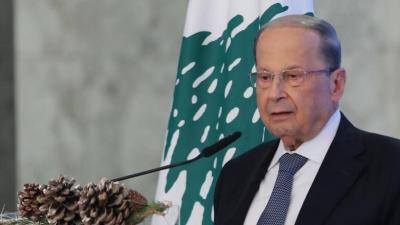Former Minister and advisor to the President, Salim Jreisaty, insists in recent statements that President Michel Aoun will not remain in the presidential palace after the end of his term. However, according to a well-informed political source, this certainty alone is not sufficient, as the country appears to be heading toward a significant constitutional impasse that will lead to a sharp division of opinions. The source stated that the incoming government does not seem likely to see the light of day, which will place the country in a state of dual vacancy: both presidential and governmental, potentially prompting certain parties, especially "the presidential team," to call for the Christian president to remain (even after the end of his term) alongside a government that has lost the confidence of the Parliament, meaning that both are in the same position of "term expiration."
The source expressed concern about potential sectarian tensions (specifically between Christians and Sunnis) related to the legitimacy of powers and authority. Meanwhile, the question of whether a caretaker government is entitled to assume the powers of the presidency remains pivotal amid the current stagnation. In response to this question, a parliamentary reference referenced Article 69 of the Constitution regarding the resignation of the government, specifically paragraph "d": "The government is considered resigned when the term of the President of the Republic begins." It clarifies that the legislator, when drafting this article, did not mention a vacancy but regarded the moment of the end of the term as the same moment the new term begins, similar to the end and beginning of the term of the Parliament.
Furthermore, the reference added that this opens the door to interpretation, with two opinions emerging: the first argues that it shifts to caretaker status upon the end of the term, regardless of the election of a president, while the second sees an implicit vacancy when the Constitution refers to the start of the term, thus it can only assume caretaker powers once the new president has assumed office.
However, the reference believes that the main issue here lies not in the concept of caretaker status, but in the loss of parliamentary confidence, as the government resigned when a new Parliament was elected, and did not gain the confidence of the new MPs, noting that the composition of the Parliament has changed significantly compared to before May 2022. Therefore, had the government resigned for another reason, it could have "revived" the previous parliamentary confidence based on some constitutional edict.
Based on the above, the reference concluded that the Constitution does not specify deadlines in many of its articles and clauses, thus it is necessary to bring it to the table and address all these gaps. It finished with a warning that the greatest fear is that making minor corrections to the Constitution could pave the way for substantial amendments... and here, all possibilities remain open!




